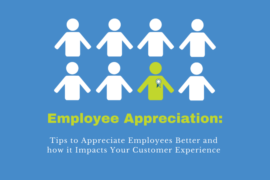Financial Mystery Shopping Services
CUSTOMIZED PROGRAMS TO ADDRESS YOUR TOUGHEST BUSINESS CHALLENGES
As one of the leading mystery shopping companies in North America, SeeLevel HX finance mystery shoppers can evaluate your competitive strengths and weakness and improve your performance across many critical areas of your business, including:
CUSTOMER EXPERIENCE & CUSTOMER LOYALTY
In the highly commoditized world of financial services, it is increasingly hard for institutions other than the very largest players to differentiate based on products and innovative digital capability.
As a result, the only way for most institutions to effectively differentiate is on the basis of a superior customer experience. Most banks and credit unions conduct surveys for customers to assess the CX across both physical and virtual channels, ideally aligning with the documented customer journey.
The extent to which these measurement programs are actionable and produce tangible ROI is often based on the culture and leadership of the institution. But it is well known in the industry that CX survey response rates among customers are declining, rarely including outliers at all, thus limiting the continued value and validity of the findings.

For institutions to deliver the customer experience that people and systems have been trained and built to deliver, real objective performance and quality audits are needed. SeeLevel HX mystery shopping as a key element of your CX program can identify exactly who among employees is a weak link in the chain, as well as where the speedbumps exist in your digital channels. The following are a few examples of circumstances in which your institution could improve its CX program through mystery shopping.
TRAINING & BRANDING
Delivering great human and digital customer experience, legal and regulatory compliance, as well as brand support, are among the most critical roles for employees in that financial institutions at branches, call centers, help desks and even chatbots.
Immense sums of money are spent every year training employees on how to speak to customers, manage and solve customer problems, best implement customer-facing technology and yes — product sales. Your employees in all channels need to properly reflect your hard-earned and valuable brand reputation in both substance and style.

When your monthly or quarterly executive dashboards get released, and sales are below target, complaints are up or technology adoption is slower than needed, do you immediately know what to fix and where?
SeeLevel HX mystery shopping cost-effectively helps you identify the root causes for these shortfalls based on objective assessments of employee adherence to your training playbook and digital roadmaps. Done right, you will often know what to fix before your dashboards display the problems in neon lights.
GAIN MORE INSIGHT FROM OUR BLOG
COMPLIANCE
Effective compliance in the financial services industry continues to be a critical function whose importance continues to grow. Banks whose compliance is faulty – even in a limited or narrow way – often face substantial fines and serious reputational damage at a time when digital offerings make bank switching easier than ever.
SeeLevel HX has extensive experience conducting consumer banking mystery shopping programs for the largest banks in the US, often utilizing complex designs to uncover discriminatory practices that drive important training, operational and legal decisions.

For institutions to deliver the customer experience that people and systems have been trained and built to deliver, real objective performance and quality audits are needed. SeeLevel HX mystery shopping as a key element of your CX program can identify exactly who among employees is a weak link in the chain, as well as where the speedbumps exist in your digital channels. The following are a few examples of circumstances in which your institution could improve its CX program through mystery shopping.
SALES PROCESSES
All bank leaders have faced the problem of needing to improve both the effectiveness and efficiency of the sales process, from core product sales and onboarding for DDA accounts through special limited time promotions that happen throughout the banking year.
Much time and money are spent on developing, supporting and executing the optimized sales process across all of your channels. So training is complete, the troops head back to their battle stations and you don’t know if any of this is working until your sales results are available and your complaints have been analyzed and managed.
SeeLevel HX mystery shopping ensures that you will be able to identify the weak links in your sales chain early enough in the sales cycle to remediate any problems. And with our robust team of mystery shoppers, SeeLevel HX can offer timely results to help you gain enough time to recover and hit your sales targets.

MERGERS & ACQUISITIONS DUE DILIGENCE
The economics of mergers and acquisitions are filled with risks based on representations made by sellers and their representatives in areas such as market penetration, customer loyalty/retention and employee engagement. Many of these risks can be effectively mitigated using mystery shopping and CX measurement to assess and validate seller representations. Mystery shopping in support of mergers and acquisitions is highly cost-effective, offers a very fast turnaround and is consistently actionable. Below are a few examples of how mystery shopping programs can enhance your diligence outcomes.
M&A CASE STUDIES
A bank being targeted for acquisition states that it has highly loyal customers, informing the buyer to assume annual customer retention of 95% in their 3-5-year projections. This is baked into the selling price and the financial performance targets of the Newco. But what if the 95% is really 80% and the buyer overpays, and the Newco needs to massively increase marketing costs to achieve targeted financials? Mystery shopping can tangibly lower that risk by identifying the likely retention rate.

An acquiring bank is spending millions of dollars and staff time on customer communications 90 days out, 60 days out, 30 days out, legal day one, and after. And this bank is also spending huge sums on employee training and messaging. SeeLevel HX mystery shopping services can identify if this messaging is actually being delivered by bank employees as planned by bank executives and if the customers are embracing the message. Our experts can identify and target both tactical and systemic solutions that will cost-effectively ensure successful integration.

A private equity firm is in due diligence to acquire a niche manufacturer, believing the seller’s market share is 70% as stated. If the private equity company’s share is really only 50% and the buyer doesn’t learn that in due diligence, they will over pay for the business, rendering viability of the 3-5-year liquidity exit event highly unlikely. Mystery shopping designed to validate the actual market share with key private equity research can turn this potential disaster into a success.

A target company in the retail space claims highly engaged store employees that are well trained and managed in following the corporate standards for service and operations. If that assertion is a hyperbole, the buyer will likely over pay and the Newco will underperform. Implementing mystery shopping services to evaluate that retailer can absolutely identify the level of service being provided and empower the buyer in negotiating more favorable terms.



